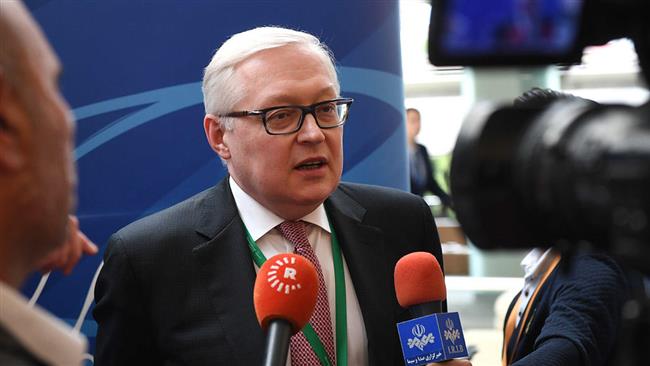‘US bid to change Iran deal unlikely to yield positive results’


Russian Deputy Foreign Minister Sergei Ryabkov says a new US push aimed at changing the terms of the 2015 multilateral nuclear deal is unlikely to bring forth “positive” results.
“[Moscow] does not expect any positive developments in the light of such decisions and possible agreements,” Ryabkov told Russia’s Sputnik news agency on Tuesday.
Earlier this month, US President Donald Trump extended waivers of key economic sanctions on Iran, lifted under the nuclear agreement, for another 120 days but said he was doing so “for the last time.”
He also called on European allies and the US Congress to work with him to “fix the disastrous flaws” in the accord, officially called the Joint Comprehensive Plan of Action (JCPOA), or face a US exit.
Ryabkov was reacting to Monday’s comments by US Secretary of State Rex Tillerson, who said that a working group of American and European officials would soon begin to develop a “side agreement” to the Iran deal in a bid to ease Trump’s complaints about the pact.
The European signatories to the deal have repeatedly said that the nuclear agreement is working well and should stand.
European powers have reaffirmed their determination to preserve Iran’s nuclear agreement against the backdrop of US efforts to undermine the landmark multinational deal.
Elsewhere in his remarks, Ryabkov warned that the issue of alleged improvement in the JCPOA “is becoming clearly targeted at jeopardizing the deal, complicating its further implementation.”
“We do not believe that any agreements and understanding that might be achieved in this format, without involving Iran and other parties to the JCPOA, will have any impact in terms of maintaining our position to support full implementation of the agreement without any adjustments,” he added.
The Russian deputy foreign minister further stressed that “these games of the United States and its European allies” will have no influence on Moscow’s position on the Iran nuclear deal.
The agreement was finalized by Iran and the P5+1 countries — namely the US, Russia, China, France, Britain, and Germany — in July 2015 and took effect in January 2016.
Trump sees the accord as a legacy of his predecessor — former US president Barack Obama — that he should undo.








